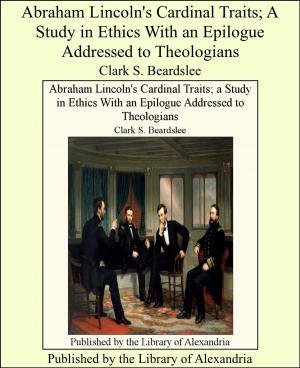Expositions of Holy Scripture: St. Mark
Nonfiction, Religion & Spirituality, New Age, History, Fiction & Literature| Author: | Alexander Maclaren | ISBN: | 9781465558732 |
| Publisher: | Library of Alexandria | Publication: | July 29, 2009 |
| Imprint: | Library of Alexandria | Language: | English |
| Author: | Alexander Maclaren |
| ISBN: | 9781465558732 |
| Publisher: | Library of Alexandria |
| Publication: | July 29, 2009 |
| Imprint: | Library of Alexandria |
| Language: | English |
WHAT 'THE GOSPEL' IS The beginning of the gospel of Jesus Christ.—Mark i. 1 My purpose now is to point out some of the various connections in which the New Testament uses that familiar phrase, 'the gospel,' and briefly to gather some of the important thoughts which these suggest. Possibly the process may help to restore freshness to a word so well worn that it slips over our tongues almost unnoticed and excites little thought. The history of the word in the New Testament books is worth notice. It seldom occurs in those lives of our Lord which now are emphatically so called, and where it does occur, it is 'the gospel of the Kingdom' quite as frequently as 'the gospel' of the King. The word is never used in Luke, and only twice in the Acts of the Apostles, both times in quotations. The Apostle John never employs it, either in his 'gospel' or in his epistles, and in the Apocalypse the word is only once found, and then it may be a question whether it refers to the good news of salvation in Jesus Christ. John thought of the word which he had to proclaim as 'the message,' 'the witness,' 'the truth,' rather than as 'the gospel.' We search for the expression in vain in the epistles of James, Jude, and to the Hebrews. Thrice it is used by Peter. The great bulk of the instances of its occurrence are in the writings of Paul, who, if not the first to use it, at any rate is the source from which the familiar meaning of the phrase, as describing the sum total of the revelation in Jesus Christ, has flowed. The various connections in which the word is employed are remarkable and instructive. We can but touch lightly on the more important lessons which they are fitted to teach
WHAT 'THE GOSPEL' IS The beginning of the gospel of Jesus Christ.—Mark i. 1 My purpose now is to point out some of the various connections in which the New Testament uses that familiar phrase, 'the gospel,' and briefly to gather some of the important thoughts which these suggest. Possibly the process may help to restore freshness to a word so well worn that it slips over our tongues almost unnoticed and excites little thought. The history of the word in the New Testament books is worth notice. It seldom occurs in those lives of our Lord which now are emphatically so called, and where it does occur, it is 'the gospel of the Kingdom' quite as frequently as 'the gospel' of the King. The word is never used in Luke, and only twice in the Acts of the Apostles, both times in quotations. The Apostle John never employs it, either in his 'gospel' or in his epistles, and in the Apocalypse the word is only once found, and then it may be a question whether it refers to the good news of salvation in Jesus Christ. John thought of the word which he had to proclaim as 'the message,' 'the witness,' 'the truth,' rather than as 'the gospel.' We search for the expression in vain in the epistles of James, Jude, and to the Hebrews. Thrice it is used by Peter. The great bulk of the instances of its occurrence are in the writings of Paul, who, if not the first to use it, at any rate is the source from which the familiar meaning of the phrase, as describing the sum total of the revelation in Jesus Christ, has flowed. The various connections in which the word is employed are remarkable and instructive. We can but touch lightly on the more important lessons which they are fitted to teach















